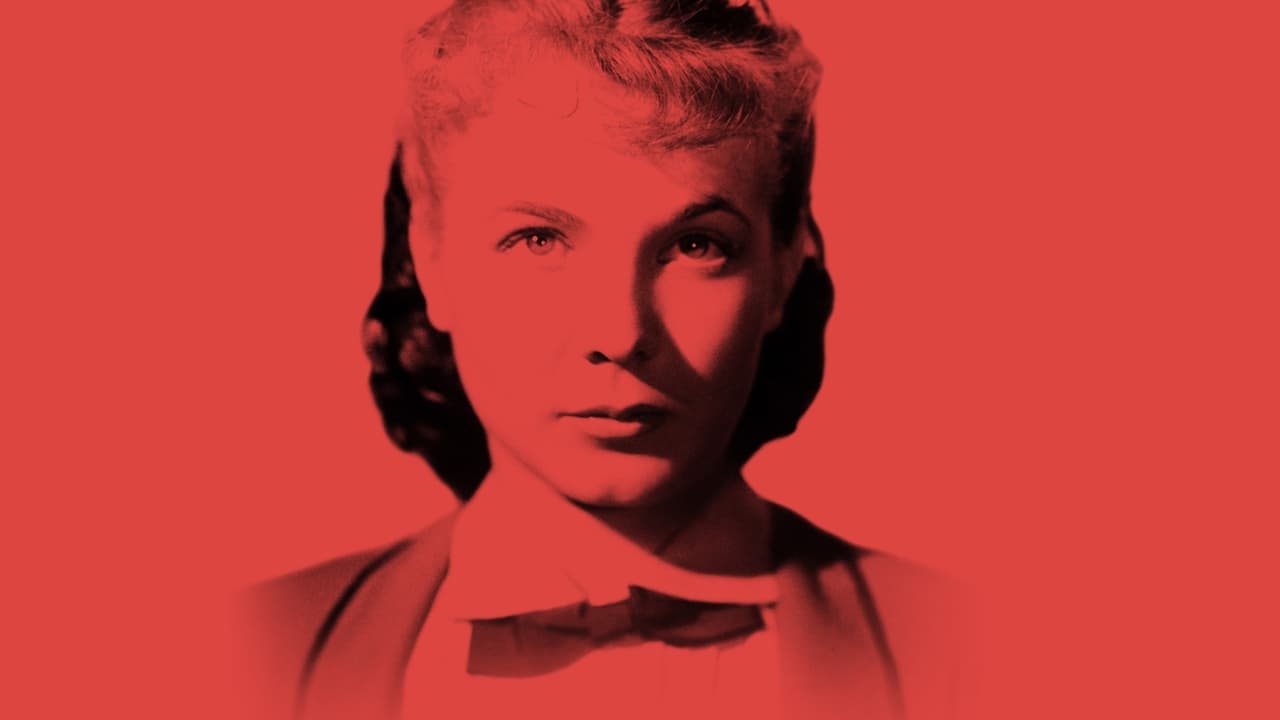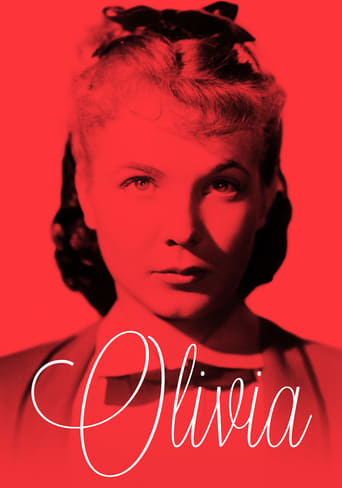

A Disappointing Continuation
... View MoreIt is interesting even when nothing much happens, which is for most of its 3-hour running time. Read full review
... View MoreA film of deceptively outspoken contemporary relevance, this is cinema at its most alert, alarming and alive.
... View MoreA film of deceptively outspoken contemporary relevance, this is cinema at its most alert, alarming and alive.
... View MoreJacqueline Audry is a special case in French cinema:today ,her work is either disdained or ignored.Nevertheless she was ,along Ida Lupino,and long before Agnès Varda ,the only woman director of the era ;and like her American peer ,she often focused on female psychology .From her personal version of child book by Comtesse De Ségur 's "Les Malheurs De Sophie" (Feuillère hints at it when she says it's the first book she gave to Olivia ;and a private joke too ,since it's Audry's first movie) to Sartre' s "Huis Clos" to Victor Limur's "La Garçonne ".Girls school was a subject Audry had to broach ;except for two brief scenes ,it does not feature any male actors ;like in Leontine Sagan's "Madchen In Uniform" ,remade by Radvanyi in 1960 with Romy Schneider and Lili Palmer ,it's a movie which depicts lesbian friendship ;it was already a subplot in "club De Femmes" (1936) and ,two years after"Olivia" ,in "Dortoir Des Grandes " (1953) another subplot concerns a maths teacher in love with a beautiful pupil.But in France ,only Jacqueline Audry dared to make an entire movie with the ambiguous shady relationship between women and girls ;along "La Garçonne" which told us the story of a woman who intended to live like a man in La Belle Epoque and "Huis Clos" ,which featured a lesbian character ,played by glorious Arletty,"Olivia " might be the director's apex.At a time when female directors make more and more their presence felt on the contemporary French scene ,isn't it about time to restore to favor the unsung Jacqueline Audry ."Olivia" features two teachers ,Mademoiselle Julie (imperial Edwige Feuillère) and Mademoiselle Cara (Simone Simon ,known as the female lead in Renoir's masterpiece " La Bete Humaine" ,but who was also the unforgettable heroine of Tourneur's "cat people " ,and thus ,a perfect choice for his hypochondriac suicidal character).Both vie with each other for their pupils' love ,and the elegant aristocratic fascinating Juliette has the upper hand ;her whining anorexic colleague is no match for her and she sees desperately her favorites " leave her" for her brilliant enemy :although they pretend to be friends,their hate lies dormant,and tragedy is waiting around the corner.Audry and her screenwriter/husband Pierre Laroche uses French literature as never before,and never since ..The extracts structure the story and inspire its vital romanticism :Racine's Andromaque who desperately wants to save her son Astyanax is Juliette's burning love for the children she never had, thus her favorite pupils.Lamartine's "Le lac"( "O Temps Suspends Ton Vol" (=time,stand still))is the happy time of the Juliette /Olivia relationship ,which culminates in the extraordinary scene of the Christmas fete.Racine's "Berenice" is a transparent metaphor for the impending parting ;Hugo's "Paroles Sur LA Dune" is downright morbid with its"death,black bolt"This is a place where boys never tread :maths are despised (and so is the teacher ,who makes up for it with what we could call binge- eating syndrome)and never taken seriously :a hundred years after,it would become THE subject ,even for girls,but at the time it was boys' business.Boys are never mentioned : one of the girls gets a bad mark for her essay on Corneille 's "Le Cid" just because too much of her work was given over to Rodrigue's character!Off-topic!(or men are considered rivals in Juliette's mind).In the sensational Christmas fancy dress ball scene,which climaxes the movie, Juliette is like a queen on her throne,and Cara is nothing but an embittered lady-in-waiting.Around them ,girls dance together ,sometimes dressed up as men in an extremely sensual atmosphere.A very permissive atmosphere in this luxury school ,where the "Crème De La Crème " ,as Miss Jean Brodie would say,reads lit classics all day long but every rose has its thorn and these students(and their teachers) cut themselves off from the real world .The office Catholique Du Cinema forbade the movie to their flock (although they did not do the same for "Madchen In uniform" ,perhaps because the latter took place in Germany!)Who will give Jacqueline Audry the place she deserves in the French cinema?
... View MoreA brief look at "Olivia" versus "Maedchen in Uniform" before I offer my exclusive review of the former.While it is true that Dorothy Strachey's 1933 novel Olivia (which was published in French originally, and then published again in English in 1949) was inspired by Christa Winsloe's novel-turned-play-turned-movies The Child Manuela, it certainly offered a different backdrop, as well as array of characters. The Child Manuela, adapted for the screen under the title "Maedchen in Uniform", was first made in 1931, starring Dorothea Wieck and Hertha Thiele. It was then re-made nearly 30 yrs later starring Lilli Palmer and Romy Schneider. I am a HUGE Lilli Palmer fan, so I personally favor the re-make over the original. But that's just me. "Olivia" is probably one of the most civilized films of its kind and for its time. I have only seen the French version of it, so I hope there were no cuts. I am curious to know what all was cut from the US release, as I seem to think that even in the French one, there is a scene toward the end of it in which Mlle Julie (played by the EXTRAORDINARY Edwige Feuillere) comes into Olivia's room to say goodbye to her and Olivia embraces her. She says that she must say goodbye to all that she has loved, even to Olivia, and she leans close. It appears that they may have cut the bit that shows her kissing Olivia on the lips. She comes so close, and then there's this little disturbance and suddenly she's inches away from Olivia. I have a strong affinity for novels and films regarding erotic pedagogy. I've been there myself. There really is no easy end to a story like that. But "Olivia" somehow sticks with me. I have the novel, which is a must-read, and I am surprised no one has re-made it. The 1951 film is extremely difficult to find. There is a user on YouTube that offers it, but the quality is not the greatest. Still, it's something ! I am surprised that there is not more on the internet about this, as there is for "Maedchen in Uniform". I think "Olivia" was a bolder film, and less ambiguous in terms of the teacher reciprocating the student's affections. The novel is slightly more explicit about there being a mutual attraction between them, but even the film shows a level of intimacy that we don't see in MiU. The kissing scene in MiU (1958) arises from Manuela rehearsing her lines for Romeo and Juliet. Also, many people could easily say that Manuela is only crushing on Fraulein Von Bernburg because she has just lost her mother and she is searching for the affection she doesn't receive from anyone else at Kaiserin-Augusta EXCEPT for Fraulein Von Bernburg, leading them to conclude that she's not really in love. Both versions of that film hold this same ambiguous uncertainty, which I find disappointing. "Olivia" is much more blank-slate. The feelings between Julie and Olivia exist and are mutual, even if there are no explicitly sexual scenes which reflect that. It is quite obvious that Mlle Julie sees something in Olivia, and that is love, which she herself does not feel she gets from Cara, the other headmistress (as well as her partner). It's implied that Julie and Cara are companions, not just partners in running Les Avons, both in the novel and the film. The villain in the story is Frau Riesener, who seizes Cara in her vulnerable state and weakens her, driving a wedge between her and Julie which causes her to become jealous of Julie's rapport with her students. There is an odd scene in "Olivia" which always seems to confuse me. WARNING ! SPOILER ! Julie kisses another girl, Cecile, openly and blatantly on her shoulder in front of Olivia, as if to provoke her jealousy. This is unseemly to me. I'm sure it's meant to attract attention, as she doesn't receive much affection from Cara, who, just a few scenes back, accused Julie of not loving her. Of course, Cara does not appeal to me at all. She is histrionic and ill-tempered. It is obvious that she doesn't appreciate all that Julie does to try to make her happy. It's no wonder that Julie should desire to spend more time with her students and at dinner parties than with Cara ! The story is quite complex ! Aside from it being about a girls' boarding school, and the skeletal notion of erotic pedagogy driving the plot, "Olivia" and "Maedchen" are COMPLETELY different films to me. Actually, I think "Olivia" is more complex and mysterious., which pleases me greatly. There are many ambiguities and unanswered questions, but whether or not Julie returns Olivia's affections is not one of them. In short, "Olivia" is a dynamic story, quite complex. It is also somewhat of an ensemble. All of the characters play integral roles, from Olivia herself to the headmistresses, to even the Victoire the cook.This film presents La Premiére (Edwige Feuillère) at her finest !Ten out of ten !Cheers, Katharyn R. King Screenwriter, Actor, Director
... View More